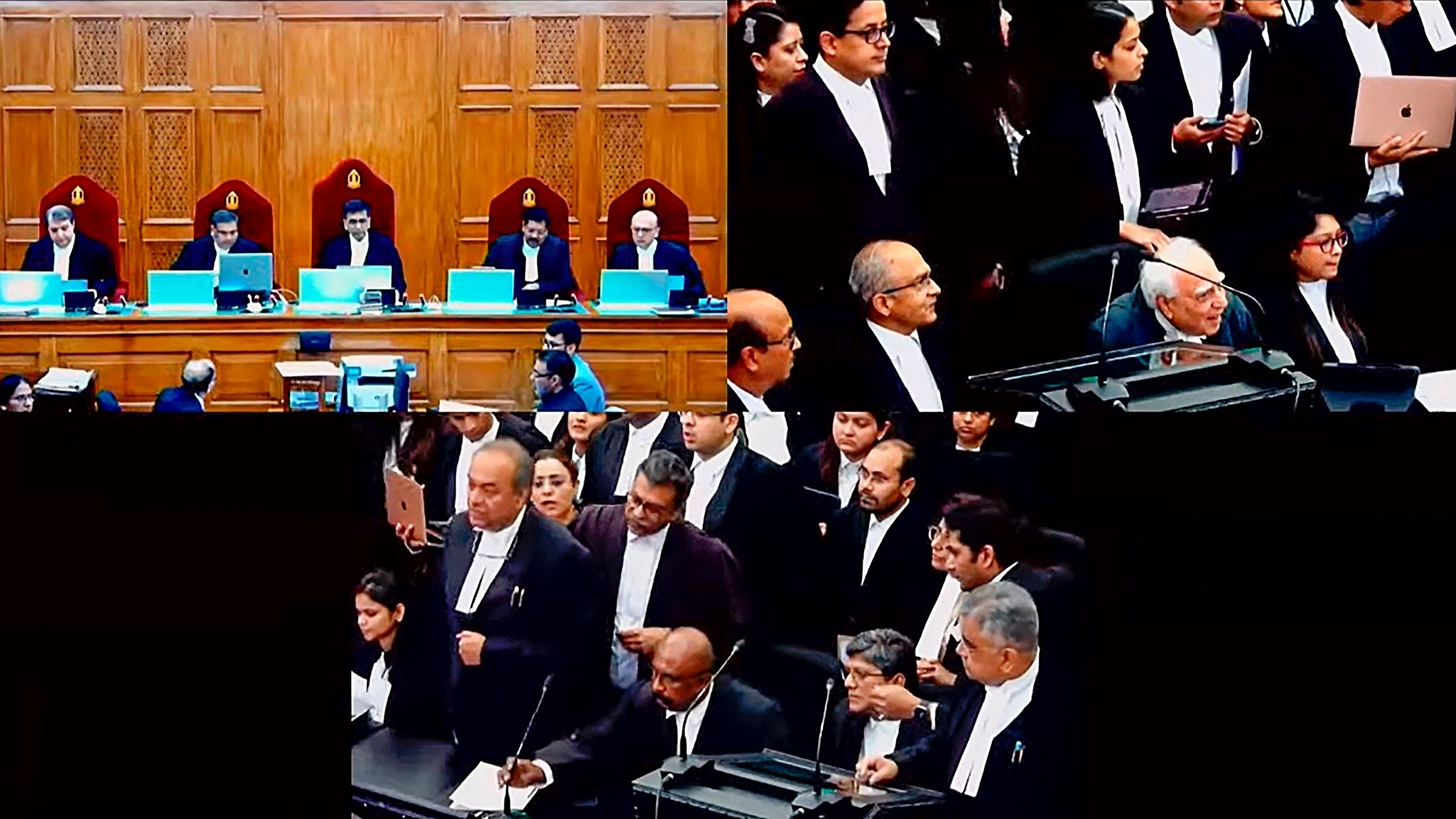
The lawyers wrote the letter soon after the Supreme Court held the Electoral Bonds Scheme unconstitutional and directed the State Bank of India to give details of the donors and the parties which received the bonds.
Credit: PTI Photo
A letter written by 21 retired judges of the Supreme Court and High Courts to the Chief Justice of India D Y Chandrachud on what they called escalating attempts by “certain factions to undermine the judiciary through calculated pressure, misinformation and public disparagement” is similar to a letter written by about 600 lawyers, including senior advocate Harish Salve, to the CJI a fortnight ago expressing the same views and concerns.
The letter has said that some persons, motivated by narrow political interests and personal gains, are striving to erode public confidence in the judicial system. The judges have said the trend is particularly noticeable with respect to some cases of economic or political significance. They have alleged that the campaign is intended to “malign the judiciary’s reputation and to influence judicial outcomes to their favour.”
The lawyers’ letter also said that a vested interest group dishonouring the judiciary and defaming the courts is active and their campaign would endanger democracy.
Both the letters are themselves actually doing what they accuse the “vested interests” to be doing to the judiciary.
The lawyers wrote the letter soon after the Supreme Court held the Electoral Bonds Scheme unconstitutional and directed the State Bank of India to give details of the donors and the parties which received the bonds.
There was no other judgement or event in the public domain at the time which could have given the lawyers the impression that the court was coming under pressure from some quarters. Individual judgements of courts have been criticised by lawyers, the media, political parties or others on legitimate grounds on many occasions. But it is unusual for a lawyers’ group to make the statement that the judiciary is coming under pressure.
Public expression of such concern by one group insinuating against other unnamed groups or individuals itself might well be interpreted as an attempt to influence the judiciary, particularly when such letters are written in the wake of a very significant judgement.
The lawyers’ letter was endorsed by Prime Minister Narendra Modi. By doing so, the Prime Minister supported the view that the courts, particularly the higher courts, could be pressured or were vulnerable to pressure from vested interests.
The Prime Minister also referred to the “committed judiciary” of the Indira Gandhi period in the 1970s. The Prime Minister should actually have condemned the lawyers’ letter, and the letter now written by former judges, as an unseemly attack on the judiciary. It is clear that the target of the letters is not the unknown persons they accuse of exerting pressure on the judiciary but the judiciary itself, and that it is more a warning than an expression of concern and caution. It is all the more disquieting that the Prime Minister should make himself a part of it.